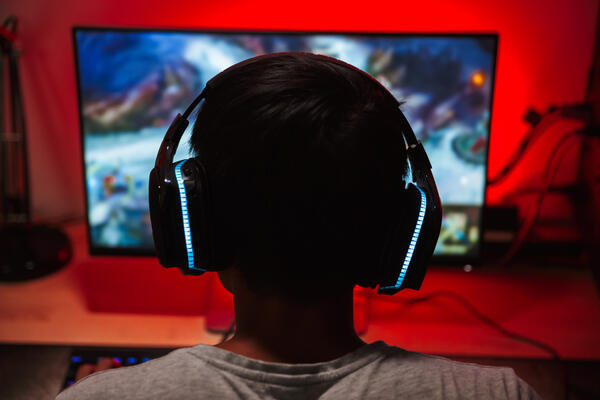Parent’s Guide to Social Networking for Gamers
Social gaming networks are now the primary way gamers play and interact with each other. Playing video games online with others provide fun and improve social skills as gamers need to connect, engage in discussions, and share strategies. It also helps develop team player skills.
However, social networking for gamers poses some risks to cyber security as anyone can contact other gamers there. In this way, online predators can potentially harass your children and teenagers. Cyberbullying is also an issue with kids play with those who are not kind.
This blog aims to guide parents so they can ensure safe gaming on social platforms for their children by following some important safety tips.
Different Social Gaming Platforms
There are different social gaming platforms, each with its own rules, chat room, privacy, strategy, etc. Most social games are designed for education and fun. Each game developer team invests a lot to promote these games to mass people.
Popular platforms for social gaming and networking are as follows:
- Stream
- PlayStation Network
- Xbox Live
- Nintendo Network
- Discord
- Twitch
- Google Play Games
- Gameloft Live
- Game Center.
Risks of Social Networking and Gaming
41% of parents say their children chat with other known and unknown gamers through live streaming while playing social games. But 64% of parents consider online gaming and networking as the same risks to post something on social media.
There is no doubt that there are some risks of social gaming that parents should consider before allowing their children to play these games.
- Online safety is a major concerning issue. While gamers are playing games on social media they may chat with unknown people. Most multiplayer games allow joining anyone of this platform, which is very risky. So, there is a high chance that children may be bullied.
- Not all games on social platforms are safe for children as some of them point to adult content that could be harmful to them.
- It’s also important to consider what the children learn from these games. Each parents needs to decide what they will allow their child to be exposed to, such as violence or games with criminal activity.
- Whenever computers connect online there are cyber security risks, including identity theft due to gaining access of to personal information as players interact with each other.
Tips to Prevent the Risks of Social Networking for Gamers
There are almost 2.8 billion gamers globally, and the majority of them were children and teenagers. The number is increasing. With the rise of gamers on social platform, the rate of cybercrimes is also increasing alarmingly.
As a parent, you can do the following things to make social networking in gaming quite safer for the children.
1. Know About the Game
Before allowing any game you should read its reviews, safety features, age limit, and other things about the game. Try to understand the games that children have access to. Learn about the features and how they work, and familiarize yourself with the platform’s safety and privacy settings.
2. Educate Children
It’s important to educate your children about the basics of internet safety and risks. This includes:
- Educate children not to share personal information on social media gaming networks. Tell them not to share sensitive information such as your full name, address, phone number, financial information, etc.
- Teach your children not to connect or have conversations with unknown people. Social media gaming networks are a breeding ground for online predators. Be aware of whom they’re talking to.
- Tell them to report to the platform’s moderators of the social media gaming network if any suspicious or harmful things come up. They have the tools to take action that can help protect your kids.
- Teach your children to avoid spam messages or links from unknown sources, as they could be phishing scams. Clicking on these links could be harmful to them.
3. Privacy Settings
Most social media gaming networks have privacy settings from where you can do some controls. This includes;
- Control who can see your children’s profiles, what information is visible, and who can chat with them. These settings will protect the information.
- Some social platforms allow you blocking of inappropriate or adult content. If there aren’t such features, keep your children away from these platforms.
- You can also set time limits so kids can’t get engrossed in the virtual world.
Activating privacy settings does not fully remove cybersecurity risks of others on the server accessing to a players personal information. Further security measures can be taken and even speed up game play by reducing your ping with a VPN.
4. Parental Control
Most reliable social gaming platforms have parental control features. Use these controls to limit your child’s exposure to inappropriate content or interactions with strangers. Moreover, you can take quick action if any bad things happen to go. Look for parental controls within the gaming console your child may be using, or the online account from which they are accessing the gaming network.
5. Use Anti-Malware Software
You can install good anti-malware software on the device your child is using to access the gaming platform. PC’s and Android tablets are the most at risk. This will help protect your kids from malware and other cyber threats.
Internet Safety and Monitoring Friendships

Social networking for gamers provides hours of engaging fun for people to connect and play with others one-on-one or within a team. Kids and teens will delete friendships overtime and you may even find that they spend time online with their friends watching movies or simply chatting while they play games with others. This is important to be aware of so that you can be involved with your child’s online activities through regular conversations with them.
It’s also vital that parents are within ear shot of their child’s online gaming activities. You may require that your child keeps their bedroom door always open while they are connected to the internet. This way you can hear conversations taking place online on a regular basis. You will hear what your child is saying to their online gaming friends during game play and otherwise.
Any online activity poses potential risks of cyberbullying, identity theft, and your kids encountering unscrupulous people with ulterior motives. Setting up building parental controls on gaming consoles and social media networks for gamers is the first step that parents need to take. Additional parental controls that monitor and filter all online activity is an add-on resource that will do the best job at keeping kids from harmful internet activity.





